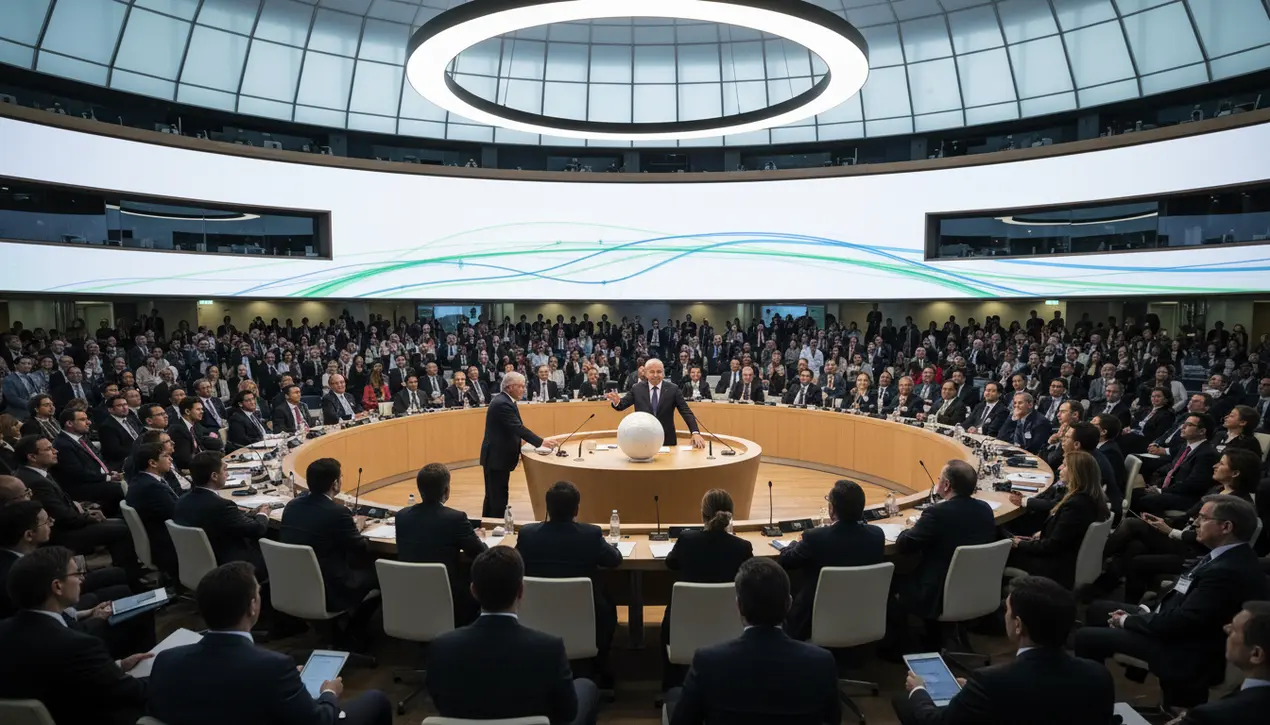
Scienceclimate scienceClimate Conferences
Brazil Pushes Fossil Fuel Phaseout at COP30.
RA
Rachel Adams
21 hours ago7 min read4 comments
In a bold strategic gambit that reframes the entire architecture of global climate diplomacy, Brazil has leveraged its position as host of the upcoming COP30 to force onto the agenda the most politically toxic subject major producer nations have sought to avoid: the deliberate, managed phaseout of fossil fuels financed by the very revenues they generate. For decades, the elephant in the negotiating room at every Conference of the Parties has been the fundamental economic dependency on oil, gas, and coal that underpins the economies of both petrostates and energy-importing giants, creating a perverse inertia where nations publicly champion decarbonization while privately expanding extraction licenses.Brazil, under the leadership of President Luiz Inácio Lula da Silva, is now confronting this paradox head-on, arguing with increasing diplomatic force that the transition to clean energy is not merely an environmental imperative but an urgent economic and political necessity for survival in a rapidly changing global market. The Brazilian proposal, as detailed in pre-COP technical working papers, pushes for the establishment of multilateral frameworks where a percentage of current fossil fuel export revenues and domestic extraction taxes are systematically funneled into sovereign wealth funds specifically earmarked for just transition projects—massive investments in green hydrogen, continental-scale solar and wind farms, and grid modernization that can provide stable employment for displaced workers.This is not a naive plea for altruism; it is a cold-eyed recognition of the coming stranded asset crisis, where trillions of dollars in fossil infrastructure risk becoming obsolete long before their economic lifespan ends, potentially triggering sovereign debt defaults and social unrest in countries from Nigeria to Saudi Arabia. The Brazilian vision draws implicit lessons from its own complex relationship with its vast offshore pre-salt oil reserves, where debates rage internally about harnessing this wealth to fund a green industrial revolution versus locking the nation into a carbon-intensive future.By placing this diversification strategy at the center of COP30, Brazil is effectively telling fellow producers that the choice is no longer between the economy and the environment, but between a planned, orderly economic transformation and a chaotic, reactive collapse. The political resistance is, of course, monumental.Nations like Russia and Saudi Arabia have historically blocked even the mildest language on fossil fuel phase-down, viewing it as an existential threat to their political stability, which is built upon a social contract funded by hydrocarbon rents. Even within Brazil's own negotiating bloc, there are tensions, with some developing nations fearing that a rapid pivot could cripple their development aspirations without sufficient Western financial backing.However, the accelerating pace of the renewable energy revolution—where solar and wind now consistently undercut fossil fuels on price—combined with the brutal economic lessons of volatile oil markets, is creating a new cohort of realists who see strategic advantage in being first movers. The success or failure of this Brazilian initiative will therefore be a defining moment, not just for the climate, but for the global economic order of the 21st century, testing whether the world can muster the political courage to engineer its own economic evolution rather than be victimized by its own inertia.
#climate diplomacy
#fossil fuel phaseout
#COP30
#Brazil
#clean energy transition
#just transition
#featured
Stay Informed. Act Smarter.
Get weekly highlights, major headlines, and expert insights — then put your knowledge to work in our live prediction markets.
Comments
Loading comments...
© 2025 Outpoll Service LTD. All rights reserved.